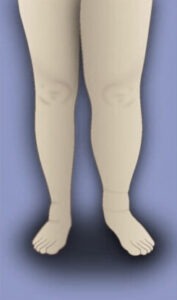How To Reduce Swelling After Cancer Treatment, Surgery, Infection or Trauma
 Lymphedema is a chronic condition characterized by swelling due to a compromised lymphatic system. It commonly occurs as a result of damage or obstruction to the lymphatic vessels, often stemming from cancer treatment, surgery, infection, or trauma. While lymphedema cannot always be prevented, there are steps individuals can take to lower their risk and manage the condition effectively. In this article, we’ll explore strategies for reducing the risk of developing lymphedema and promoting overall lymphatic health, including the option of Lymphatic Drainage (MLD) Massage.
Lymphedema is a chronic condition characterized by swelling due to a compromised lymphatic system. It commonly occurs as a result of damage or obstruction to the lymphatic vessels, often stemming from cancer treatment, surgery, infection, or trauma. While lymphedema cannot always be prevented, there are steps individuals can take to lower their risk and manage the condition effectively. In this article, we’ll explore strategies for reducing the risk of developing lymphedema and promoting overall lymphatic health, including the option of Lymphatic Drainage (MLD) Massage.
Understanding Lymphedema: Before delving into preventative measures, it’s essential to understand the factors that contribute to lymphedema. Lymphedema typically occurs when the lymphatic system is unable to adequately drain lymph fluid from the body’s tissues, leading to swelling, discomfort, and an increased risk of infection.
Common Causes of Lymphedema Include
- Cancer treatment: Surgery, radiation therapy, or lymph node removal as part of cancer treatment can damage the lymphatic system, increasing the risk of lymphedema.
- Trauma or injury: Physical trauma, such as a severe injury or accident, can disrupt the normal functioning of the lymphatic vessels, resulting in lymphedema.
- Infection: Infections affecting the lymphatic system, such as cellulitis, can impair lymphatic drainage and contribute to the development of lymphedema.
Lowering Your Risk of Lymphedema
- Maintain a Healthy Weight: Obesity or significant weight gain can put added pressure on the lymphatic system, hindering lymphatic circulation and increasing the risk of lymphedema. Maintaining a healthy weight through a balanced diet and regular exercise can help support optimal lymphatic function.
- Protect Against Infection: Infections, particularly those affecting the skin and soft tissues, can exacerbate lymphedema or trigger its onset. Take precautions to prevent infection by practicing good hygiene, avoiding cuts or injuries, and promptly treating any wounds or skin conditions.
- Gradual Exercise: Engaging in regular, low-impact exercise can promote lymphatic circulation and reduce the risk of lymphedema. However, it’s essential to start slowly and gradually increase the intensity of exercise to avoid overexertion and strain on the lymphatic system. Consult with a healthcare provider or lymphedema therapist for personalized exercise recommendations.
- Lymphatic Drainage (MLD) Massage: Lymphatic Drainage (MLD) Massage is a specialized form of massage therapy designed to stimulate the lymphatic system and promote the natural drainage of lymph fluid. MLD massage can help reduce swelling, improve lymphatic circulation, and support overall lymphatic health. However, individuals should consult with a certified MLD therapist and their healthcare provider before undergoing MLD massage, especially if they have a history of lymphedema or other medical conditions. LEARN MORE
- Avoid Tight Clothing and Jewelry: Restrictive clothing, tight-fitting jewelry, or accessories that constrict lymphatic flow can impede lymphatic drainage and contribute to swelling. Opt for loose, comfortable clothing and avoid wearing tight sleeves, waistbands, or accessories for extended periods, especially on affected limbs.
- Practice Gentle Skin Care: Proper skincare is essential for individuals at risk of lymphedema, particularly those who have undergone cancer treatment or lymph node surgery. Avoid harsh soaps, hot water, or vigorous scrubbing, as these can irritate the skin and compromise its protective barrier. Use mild, moisturizing products and gently pat the skin dry after bathing.
- Maintain Optimal Hydration: Adequate hydration is crucial for supporting lymphatic function and preventing fluid retention. Drink plenty of water throughout the day to help flush toxins from the body and maintain optimal hydration levels. Limiting alcohol and caffeine consumption can also help prevent dehydration and promote lymphatic health.
Lymphatic Health
While lymphedema poses challenges for many individuals, adopting proactive strategies can help lower the risk of developing this chronic condition and promote overall lymphatic health. By maintaining a healthy lifestyle, protecting against infection, practicing gentle skincare, considering options like Lymphatic Drainage (MLD) Massage, and being mindful of potential triggers, individuals can take proactive steps to reduce their risk of lymphedema and enhance their quality of life. Consulting with healthcare providers or lymphedema specialists can provide further guidance and support in managing lymphatic health effectively.
Contact Our Mobile Lymphatic Drainage Massage Clinic | The Villages, Florida

In Home or In Office Massages by Jacqueline in the Central Florida area. Certified for many different massages and treatments. Specializing in Manual lymphatic drainage (MLD) post surgery recovery massage.
To schedule an appointment with Licensed Massage Therapist and Certified Advanced Manual Lymphatic Drainage Therapist, Jacqueline Bosco CMLDT, please call (813) 298-5603. We believe nothing is more important than human touch.
Providing massage services to patients in The Villages, Florida, Lady Lake, Fruitland Park, Leesburg, Tavares, Mount Dora, Wildwood, Bushnell, and surrounding areas.
